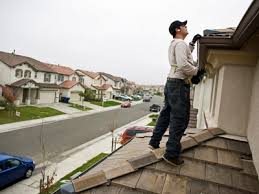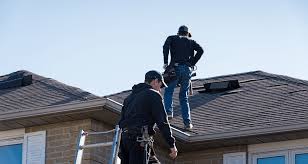Home Inspections Are For the Wise
What Is a Home Inspection?
A home inspection is an examination of the condition of a real estate property. It usually takes place in connection with the property’s sale. A qualified home inspector assesses the condition of a property, including its heating and cooling systems, plumbing, electrical work, water and sewage, as well as some fire and safety issues. In addition, the home inspector will look for evidence of insect, water, or fire damage or any other issue that may affect the value of the property.

What Do Home Inspections Cover?
As a rule of thumb, think of a home inspection like a well visit to the doctor. Your doctor takes looks at several of your body’s individual components – reflexes, blood pressure, and medical history – to make an overall all determination of your health. Home inspectors work in much the same way.
Since every property is different, the specifics of what is checked during your home’s inspection may very slightly. But, the American Society of Home Inspectors (ASHI) suggests that qualified inspectors will check the following areas:
- Foundation and basement
- Any additional structural components
- Interior plumbing systems
- Interior electrical systems
- Heating and cooling systems
- Condition of windows
- Condition of doors and door frames
- Condition of floors, walls, and ceilings
- The attic and any visible insulation

Who pays for a home inspection?
The buyer usually pays for the home inspection. However, on making an offer, some insist the seller pays. So that’s an item for negotiation.
Sometimes, sellers commission a home inspection before they first offer the home. That can reassure potential purchasers. And it can provide the owner with a chance to fix issues ahead of the marketing of the property.
However, not all buyers are willing to accept a report paid for by the seller. In fact, experts recommend that buyers choose their own inspector, someone without ties to either the seller or the selling agent.

Questions for Home Inspectors
When the home inspector finishes looking at the home you are planning on buying; you will need to ask him or her some questions. Hopefully, you will have lots of questions. Of course, it can be helpful to know what questions are important for buyers to ask a home inspector. Here is a list of summary questions and short explanations about each. Notice some of these things should be asked before the inspection takes place and others after completion.
- How much does the home inspection cost?
- What is covered in the home inspection?
- How is the home inspection done?
- Can you explain this to me? Home inspectors should be glad to explain their observations.
- How big a problem is this? You need perspective on what issues are most pressing.
- Do I need an expert to look at this problem? Diagnosing issues sometimes requires more specific expertise.
- Is this problem normal? You want to know if a problem is common in most homes or more unusual.
- Can you advise me on things I should fix when I move into the home? Some problems are better off addressed immediately when you move in.
5 Key Reasons to Have a Home Inspection Before You Buy
It’s easy to get swept up in the excitement of buying a new home and forget to make the important decision to have a home inspection conducted soon after you are under contract.
Home inspections are an instrumental part of the homebuying process that can save you a lot of time and money in the long run.
Here are five great reasons to have a home inspection before you buy:
Don’t Judge a Home by Its Facade
Especially for those buying newer construction, a home inspection may feel like a waste of money. No matter the age of the home, there can be costly troubles unknown to the average buyer. Problems with wiring, plumbing or structural issues may not be visible during a showing and you’ll want to get an expert opinion. Even before you get to the interior, you can do your own preliminary inspection. Simply walk around the home’s exterior and look for these four potential problems.
Save Money
Home inspection costs vary but a good rule of thumb would be to expect to pay from $300 to $500 depending on size and age of the home. That’s a good sum, but perhaps think of it this way: Those who skip out on the expense may realize in a few years that an inspection is much cheaper than rewiring the entire house.
Negotiate
One of the advantages of having a home inspection performed before you buy is the power it might give you to negotiate a lower price. If a home you’re really interested in is on the edge of your price range, information gathered during the home inspection may give you the bargaining power to talk down the price. You can also insert language into a purchase contract that allows you to back out of an agreement if the inspection turns up problems.
Seller’s Repairs
Not only are you able to negotiate a lower price, many buyers include clauses in their contract requiring the seller to make the repairs necessary before any money is exchanged. If the seller is unwilling to complete the repairs, estimate the cost and ask them to take that amount off the total. Solid facts about the quality and condition of the home can give you valuable bargaining power.
Remember that a seller’s repairs are not eligible to be included in seller concessions. VA guidelines allow the value of seller concessions to equal up to 4 percent of the selling price, but that 4 percent comes is in addition to any negotiated repairs.
Know What You’re Buying
In the end the most important reason to have a home inspection before you buy is to really know what you’re buying. Research your potential home like you would any other major purchase. The more you know, the fewer surprises there will be down the road. Home inspectors can help you make a decision based on your current budget as well as your future time and money investment.